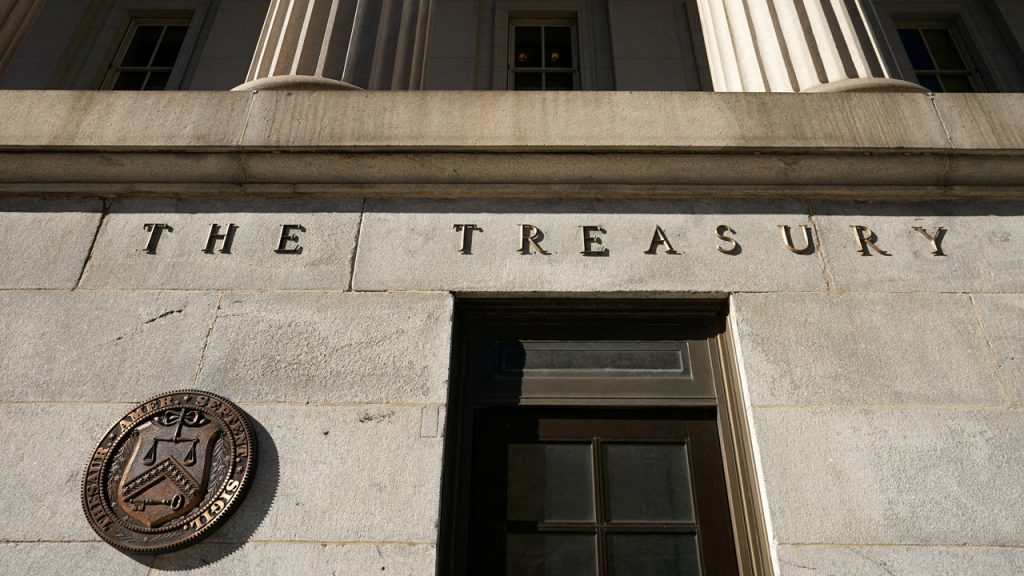The U.S. Treasury placed sanctions on a Russian citizen and three Russia-based companies for attempting to evade U.S. sanctions in a scheme that could have unfrozen over $1.5 billion belonging to Russian metals tycoon Oleg Deripaska, who himself was placed under U.S. sanctions in April 2018. Deripaska built his fortune in metals trading following the collapse of the Soviet Union, with Forbes estimating his wealth at $2.8 billion this year. In June 2023, Deripaska coordinated with Dmitrii Beloglazov, owner of Russia-based financial services firm Titul, on a transaction to sell Deripaska’s frozen shares in a European company.
Shortly after, another Russia-based financial services firm, Aktsionernoe Obshchestvo Iliadis, was established as a subsidiary of Titul. In early 2024, Iliadis acquired International Company Joint Stock Company Rasperia Trading Limited, which holds Deripaska’s frozen shares. Beloglazov, Titul, and Iliadis were all sanctioned by the Treasury for operating in Russia’s financial services sector, while Rasperia was sanctioned for being owned or controlled by Iliadis. The sanctions are part of the U.S. government’s efforts to prevent individuals and entities from bypassing sanctions imposed on Russian individuals like Deripaska.
The U.S. government’s decision to impose sanctions on these entities highlights the ongoing efforts to crackdown on individuals and companies trying to evade U.S. sanctions. By targeting Beloglazov, Titul, Iliadis, and Rasperia for their involvement in attempting to unfreeze funds belonging to Deripaska, the U.S. Treasury aims to send a strong message that such actions will not go unpunished. Deripaska’s wealth and influence in the Russian metals industry have made him a key target of U.S. sanctions, and the recent sanctions on these entities are part of a wider strategy to enforce sanctions on Russian individuals and entities.
The sanctions imposed by the U.S. Treasury on the Russian citizen and three Russia-based companies represent a significant step in the effort to uphold sanctions against individuals like Oleg Deripaska and prevent them from bypassing these restrictions. By targeting individuals and entities that are involved in schemes to evade sanctions and unfreeze funds, the U.S. government is sending a clear message that it will not tolerate such actions. The sanctions on Beloglazov, Titul, Iliadis, and Rasperia demonstrate the U.S. government’s commitment to enforcing sanctions on Russian individuals and entities, especially those who are attempting to circumvent these measures.
The involvement of Beloglazov, Titul, Iliadis, and Rasperia in a scheme to sell Deripaska’s frozen shares in a European company highlights the lengths to which individuals and companies may go to circumvent U.S. sanctions. The establishment of subsidiary companies and acquisition of shares in an attempt to bypass sanctions demonstrates the complex and sophisticated methods used by those seeking to evade restrictions. The sanctions imposed by the U.S. Treasury on these entities serve as a warning to others who may be considering similar actions, indicating that such schemes will be met with severe consequences.
The U.S. government’s decision to impose sanctions on a Russian citizen and three Russia-based companies for attempting to evade U.S. sanctions on Oleg Deripaska underlines the importance of upholding and enforcing sanctions against individuals and entities that violate them. The sanctions on Beloglazov, Titul, Iliadis, and Rasperia are part of broader efforts to crackdown on those seeking to bypass sanctions and unfreeze funds belonging to sanctioned individuals. By targeting these entities and individuals, the U.S. Treasury aims to deter others from engaging in similar actions and uphold the integrity of sanctions imposed on Russian entities like Deripaska.













